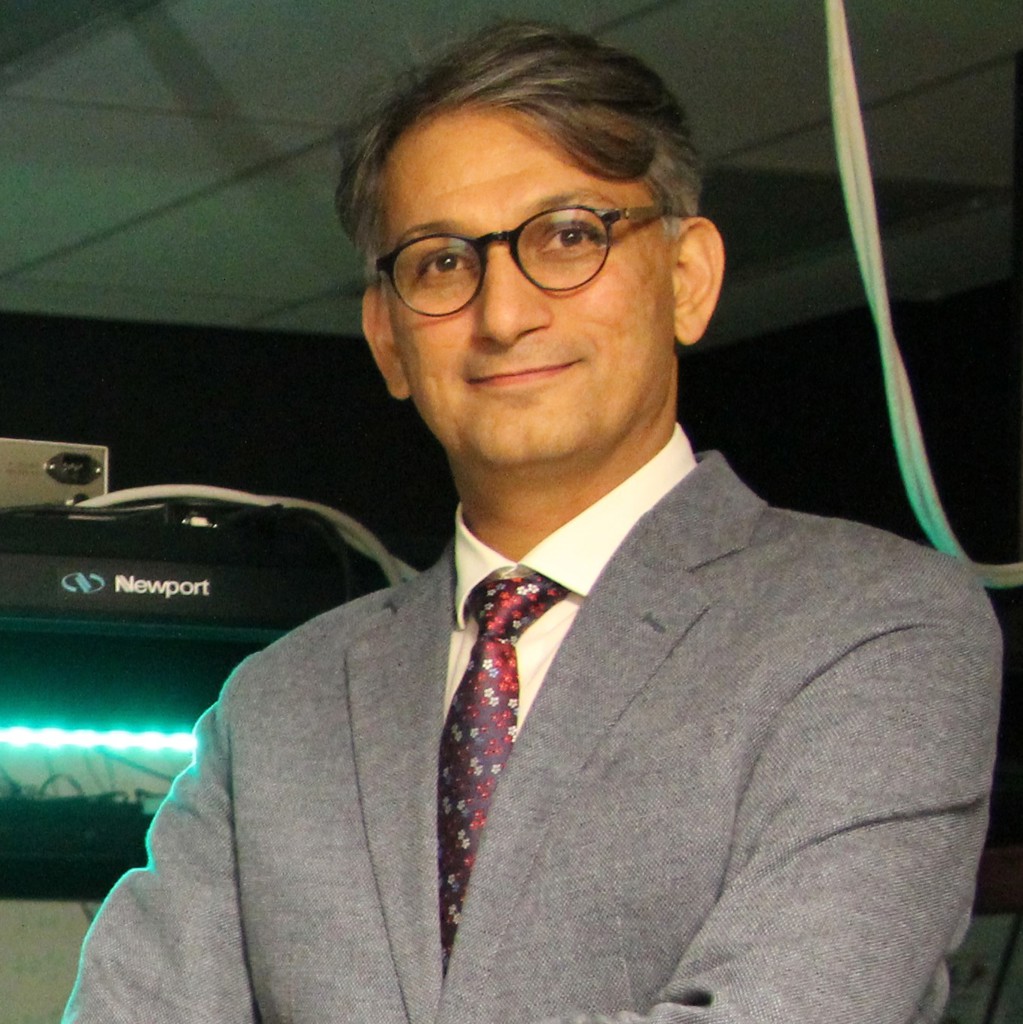Ebrahim Karimi
University of Ottawa, CanadaFor outstanding and sustained contributions to the research and development of structured quantum waves, particularly singular optics, optical angular momentum, and quantum information.

“Quantum photonics was not only a field of research to me, but it also opened my eyes to nature, its fundamental laws and to the foundations of physics,” says Ebrahim Karimi, Canada Research Chair in Structured Light and group leader of the Structured Quantum Optics (SQO) group at the University of Ottawa. Growing up, he would create structures at home using simple mirrors and plastic pens and play around with the reflection and color spectrum of light. In high school, he remembers trying to see Young’s double-slit experiment with three of his friends for about a week without success. He later learned that they were unsuccessful because their light source (a tungsten lamp) was not coherent enough to observe clear interference. Nevertheless, he maintained a keen interest in light and then discovered, after completion of his BSc, that light could act as either a massless particle or an electromagnetic wave. He found the concept of photons so fascinating that he changed his research field from mathematical physics to quantum optics and has never looked back.
For Ebrahim, completion of his BSc, and later his MSc and PhD, was no small task. As a Kurd in Iran in the 1980s, Ebrahim says “it was impossible to pursue higher education.” In primary school, his city was bombarded by the Iraqi air force and they had to evacuate the city and stay in a village far from the border for several months. He ended up studying all of grade 4 in a village without a teacher. Later on, the political situation changed and he was able to complete his B.Sc. and then M.Sc. However, during this time, his status was on hold for several semesters while awaiting a security clearance. Once he was finally able to finish, he faced having to complete three years of mandatory military service before he could begin his Ph.D. program in Italy at the University of Naples. “When I look back,” he says, “I cannot believe that I passed all of these difficulties; nevertheless, I was always thirsty and hungry for learning new things.”
He credits his high school teachers as his mentors. He says that they were always available, even outside of school, and believed in all students. They gave the students “confidence to excel” and trained them in the basics. Ebrahim adds that the teachers took the time to teach them advanced concepts and supported them in their personal lives. “A mentor must be supportive,” says Ebrahim. “Choose one who believes in you,” he advises.
Today, Ebrahim’s research is focused on spatial structuring of optical and matter waves. He says there are several projects that he learned new concepts from which he really loves. One such project was published in Optica in 2016 where he and his colleagues “showed for the first time that optical beams with twisted wavefronts experience a group velocity that is smaller than c, the speed of light in vacuum.” He says that his favorite part of the research process is brainstorming and coming up with the ideas. “You need to think and be creative at the same time. It frequently happens that we come up with a great idea, but then realize that scientists before us have already tested it a decade before us, which gives us a good feeling that we were thinking in the right direction,” he adds.
Ebrahim says there is “no doubt that photonics will be the turning point in technology in the current century” and says that this had already started during the 20th century with the innovation of optical fibers, optical communications, solar cells, etc. Ebrahim says, “security, safety, and health are the current concerns and challenges” and notes that “optics and photonics have strong potential to address these tasks.”
OSA was the first international organization that Ebrahim joined and the first manuscript he reviewed was in Optics Express. He says that OSA helped him to gain knowledge and establish his career while interacting with legends in the field, learning to organize small and big scientific events, and understand and promote science to different communities.
When asked about providing advice to young researchers or those considering a STEM career, Ebrahim says, “It is extremely important to keep your curiosity level as high as that of a child.” Curiosity is the basis “for creativity and innovation. As Steve Jobs said, ‘Stay hungry, stay foolish’.”
Profile Written by Jeanette Gass
